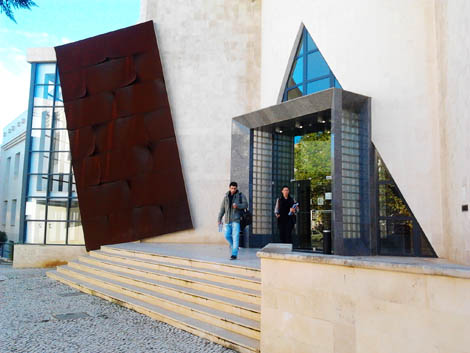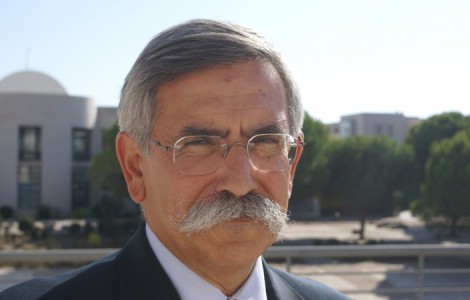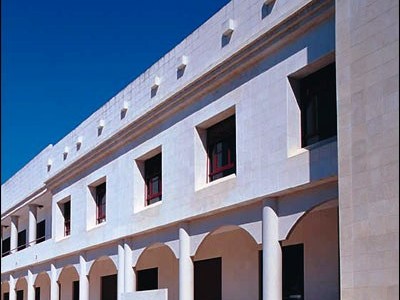 The rectors of Portuguese Public Universities will meet today, Wednesday, with the Parliamentary Commission on Education and Culture to present arguments against the cuts in direct transfers from the State to public Higher Education foreseen in the State Budget (OE) for 2013 .
The rectors of Portuguese Public Universities will meet today, Wednesday, with the Parliamentary Commission on Education and Culture to present arguments against the cuts in direct transfers from the State to public Higher Education foreseen in the State Budget (OE) for 2013 .
The average of cuts at the national level is 10 percent, a percentage that, in the case of the University of the Algarve (UAlg), rises to 12,5 percentage points and that the institution's dean João Guerreiro has already warned that he will prevent the university from functioning , next year.
The dean of UAlg was the guest of the radio program «Impressions», organized jointly by the Sul Informação and by Rádio Universitária do Algarve RUA FM. Interview where the current situation and future of UAlg were analyzed in depth and can be heard in full today, from 19 pm, on 102.7 FM or on the RUA website. On Saturday, there is noon repetition.
João Guerreiro has been warning for about two weeks, even before the approval of the OE in general, that the planned cuts will prevent the institution he heads, but not only, from fulfilling its basic obligations.
Yesterday, Tuesday [the day the interview took place, as João Guerreiro will be in Lisbon today], he did it again and explained that not only have all the possible cuts been made, but there is also no way to get more revenue own, which may even go down in relation to previous years.
“Universities have been able to generate their own resources, in addition to OE appropriations, to fulfill their needs. But what is certain is that in the crisis situation in which we live, this component of own resources is increasingly limited, more blocked. The problem is not how we are going to grow our own resources, it is how we are going to stop them and not allow them to decrease», he said.
 The University's own revenues, apart from the tuition fees paid by students, go through the provision of services, a means of financing that is strongly affected by the crisis. «Contracts with companies do not have the same development as in the past, services to institutions and municipalities no longer exist, the financing of science itself works, but what the University benefits is very little, just institutional costs to offset some expenses, with fixed costs it has. In the situation we are in, it is not at all easy to make our own resources grow, quite the opposite», revealed João Guerreiro.
The University's own revenues, apart from the tuition fees paid by students, go through the provision of services, a means of financing that is strongly affected by the crisis. «Contracts with companies do not have the same development as in the past, services to institutions and municipalities no longer exist, the financing of science itself works, but what the University benefits is very little, just institutional costs to offset some expenses, with fixed costs it has. In the situation we are in, it is not at all easy to make our own resources grow, quite the opposite», revealed João Guerreiro.
As for spending cuts, all that could be done were made following "the cuts that have already taken place in 2011 and 2012". “Just to give you an idea, the 2012 budget, when compared to the 2011 budget, already represented a cut [in direct state transfers] of 8,5 percent,” he said.
A further reduction in direct funding, in such a significant percentage (12,5%), will be unaffordable, he warned, not least because successive cuts have been made for years to this part and UAlg needs «time to accommodate such a situation. genre". Although the funds necessary for the operation in 2012 are guaranteed, they have already forced the university to avail itself of "balances carried over from previous years", a "fund that is running out".
«All the work we've done before, renegotiating contracts, giving up some teachers who were part-time, and everything else we've done to reduce costs, is done. We are now in a situation that what is proposed for 2013 cannot be accommodated by the University Budget», he assured.
Universities do not refuse to participate in the cost-cutting effort
 The refusal of cuts of this magnitude in the appropriations of the State Budget is not a refusal on the part of the Universities to help the effort to contain public expenditure that is being carried out by the State, guaranteed João Guerreiro. Deans were already expecting reductions, but in much smaller percentages, which led the different institutions to do their homework and think about how to accommodate the cuts that were on the table in the summer.
The refusal of cuts of this magnitude in the appropriations of the State Budget is not a refusal on the part of the Universities to help the effort to contain public expenditure that is being carried out by the State, guaranteed João Guerreiro. Deans were already expecting reductions, but in much smaller percentages, which led the different institutions to do their homework and think about how to accommodate the cuts that were on the table in the summer.
“The Universities Budget was negotiated in August. And in the negotiation, average cuts values in the order of 2,5 percent were advanced. There were some institutions more penalized than others and we have been finding solutions to accommodate these cuts. We were in a relatively calm process, in the sense that, within this logic of reducing public spending, the universities also played a role of solidarity in this containment effort", said João Guerreiro, adding that "the universities understood the meaning of this reduction". In other words, the cuts went from a forecast “of 10 or 12 million euros” in August to “more than 50 million euros” in the OE proposal.
Tuition fees remain below the maximum provided for in the Law
On the side of bribes, there is also no room for maneuver. On the one hand, because its value has already been set by the General Council of the University of Algarve, a body that brings together personalities outside the University, students and professors from UAlg, with an increase of 30 euros compared to 2012, but still below the maximum forecast. in the law. But also for social reasons, to prevent dropout levels from increasing. Although, for the time being, there is no noticeable abnormal variation in dropouts, the effects of the crisis are increasingly felt.
“I have noticed more requests from students who say they cannot pay tuition fees at the rate we demand. We have already adapted the pace to circumstances, with four or five installments a year, but even so there are families and students who cannot secure this payment. Thus, there has been a growing number of requests to renegotiate these payment terms and find others longer in time», revealed João Guerreiro.
Even the €30 increase will not contribute to the University's budget, as it has been decided to put another end to this revenue increase. UAlg decided to create an emergency fund, to respond to situations of social need that arise during the school year and that are no longer likely to be covered by the regular Social Action system, which is supervised by the State and subject to applications with deadlines. very specific.
You can listen to the entire interview today, Wednesday, at 19 pm, on RUA FM, at 102.7 FM


















Comments